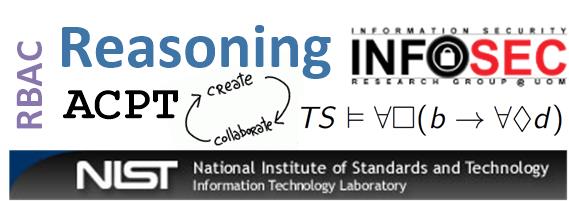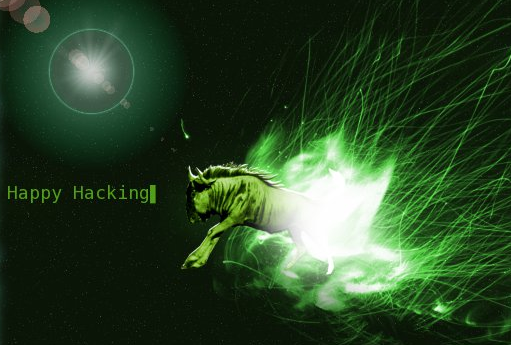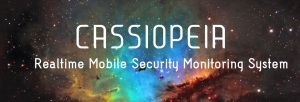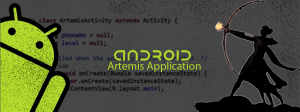The 8th Conference on Decision and Game Theory for Security
===========================================================
GameSec 2017 will take place at Tech Gate Vienna from October 23 until October
25, 2017. The venue will be hosted by the Austrian Institute of Technology,
Center for Digital Safety & Security.
The submission deadline is June 29, 2017.
You can find a detailed description of the conference at:
http://www.gamesec-conf.org
as well as this CFP on EasyChair: https://easychair.org/cfp/GameSec2017
The Conference Proceedings will appear in Springer’s Lecture Notes of Computer Science Series.
Important Dates
====================================================
Abstract (optional): June 15, 2017
Submission: June 29, 2017
Decision notification: August 3, 2017
Camera-ready: August 18, 2017
Submission link: https://www.easychair.org/conferences/?conf=gamesec2017
Conference Topics:
====================================================
The goal of GameSec is to bring together academic and indus- trial
researchers in an effort to identify and discuss the major technical
challenges and recent results that highlight the connection between
game theory, control, distributed optimization, economic incentives
and real world security, reputation, trust and privacy problems in a
variety of technological systems. Submissions should solely be
original research papers that have neither been published nor
submitted for publication elsewhere.
* Game theory and mechanism design for security and privacy
* Pricing and economic incentives for building dependable and secure systems
* Dynamic control, learning, and optimization and approximation techniques
* Decision making and decision theory for cybersecurity and security requirements engineering
* Socio-technological and behavioral approaches to security
* Risk assessment and risk management
* Security investment and cyber insurance
* Security and privacy for the Internet-of-Things (IoT), cyber-physical systems, resilient control systems
* New approaches for security and privacy in cloud computing and for critical infrastructure
* Security and privacy of wireless and mobile communications, including user location privacy
* Game theory for intrusion detection
* Empirical and experimental studies with game-theoretic or optimization analysis for security and privacy
Special Track on “Data-Centric Models and Approaches”
—————————————————–
In cyber and physical security and privacy applications, data plays an
important role and presents fundamental challenges. In some domains, it is
difficult to gather a large amount of data, and the data available may suffer
from severe class imbalance, high noise, and numerous missing entries. In
other domains, when multiple agents are involved, how the data presented to
the agents impacts their decision making is under-explored. It can be
challenging to incorporate data of the available form into the game-theoretic
and decision-theoretic models for these domains, since many current approaches
apply to precisely defined models and how to define models using the available
data is unclear in many cases. In addition to the data-related challenges in
cyber and physical security domains, the use of data in many domains leads to
security and privacy concerns, and game-theoretic and decision-theoretic
models can be designed for addressing such concerns. This special track
invites submissions on various data-centric models and approaches, including
work on empirical game theory; adversarial machine learning; data collection
through crowdsourcing; synthetic data generation; applications of machine
learning methods; novel techniques for handling real-world data and evaluating
models using data.models and approaches, including work on empirical game
theory; adversarial machine learning; data collection through crowdsourcing;
synthetic data generation; applications of machine learning methods;
novel techniques for handling real-world data and evaluating models using data.
Organization Team:
====================================================
Steering Board
Tansu Alpcan (University of Melbourne)
Nick Bambos (Stanford University)
John S. Baras (University of Maryland)
Tamer Başar (University of Illinois at UC)
Anthony Ephremides (University of Maryland)
Jean-Pierre Hubaux (EPFL)
Milind Tambe (University of Southern California)
General Chair: Stefan Rass (Universität Klagenfurt, Austria)
TPC Chairs
Bo An (Nanyang Technological University, Singapore)
Christopher Kiekintveld (University of Texas at El Paso, US)
Special Track Chair: Fei Fang (CMU)
Publication Chair: Stefan Schauer (Austrian Institute of Technology, Austria)
Local Arrangements and Registration: Birgit Merl (Universität Klagenfurt, Austria)
Publicity Chairs
Asia-Pacific: Daniel Xiapu Luo (The Hong Kong Polytechnic University)
Europe: Antonios Gouglidis (Lancaster University, UK)
North-America: Jun Zhuang (University at Buffalo, NY, USA)
Web Chairs
Markus Blauensteiner (Universität Klagenfurt, Austria)
Philipp Pobaschnig (Universität Klagenfurt, Austria)
Technical Program Committee
– TPC Chairs:
Bo An (Nanyang Technological University, Singapore)
Christopher Kiekintveld (University of Texas at El Paso, US)
– TPC Members:
Alvaro Cardenas (University of Texas at Dallas)
Andrew Odlyzko (University of Minnesota)
Anil Kumar Chorppath (TU Dresden)
Arman Mhr Khouzani (Queen Mary University of London)
Aron Laszka (Vanderbilt University)
Arunesh Sinha (University of Michigan)
Bo An (Nanyang Technological University, Singapore)
Carlos Cid (Royal Holloway, University of London)
Christopher Kiekintveld (University of Texas at El Paso, US)
David Pym (UCL)
Eduard Jorswieck (Technical University Dresden)
Fernando Ordonez (Universidad de Chile)
George Theodorakopoulos (Cardiff University)
Habtamu Abie (Norsk Regnesentral – Norwegian Computing Center)
Jean Leneutre (Ecole Nationale Supérieure des télécommunications (ENST))
Jens Grossklags (Technical University of Munich
Jun Zhuang (SUNY Buffalo)
Konstantin Avrachenkov (INRIA Sophia Antipolis)
Long Tran-Thanh (University of Southampton)
Mehrdad Nojoumian (Florida Atlantic University)
Mohammad Hossein Manshaei (EPFL)
Murat Kantarcioglu (University of Texas at Dallas)
Pradeep Varakantham (Singapore Management University)
Stefan Rass (System Security Group, Klagenfurt University)
Yee Wei Law (University of South Australia)
Yevgeniy Vorobeychik (Vanderbilt University)
Yezekael Hayel (LIA / University of Avignon)
…more to be added…
====================================================
Kind regards,
GameSec 2017 Organizers:
Bo An (TPC co-chair), Nanyang Technological University, Singapore
Christopher Kiekintveld (TPC co-chair), University of Texas at El Paso, USA
Stefan Rass (General Chair), Universitaet Klagenfurt, AustriaThe 8th Conference on Decision and Game Theory for Security
===========================================================
GameSec 2017 will take place at Tech Gate Vienna from October 23 until October
25, 2017. The venue will be hosted by the Austrian Institute of Technology,
Center for Digital Safety & Security.
The submission deadline is June 29, 2017.
You can find a detailed description of the conference at:
http://www.gamesec-conf.org
as well as this CFP on EasyChair: https://easychair.org/cfp/GameSec2017
The Conference Proceedings will appear in Springer’s Lecture Notes of Computer Science Series.
Important Dates
====================================================
Abstract (optional): June 15, 2017
Submission: June 29, 2017
Decision notification: August 3, 2017
Camera-ready: August 18, 2017
Submission link: https://www.easychair.org/conferences/?conf=gamesec2017
Conference Topics:
====================================================
The goal of GameSec is to bring together academic and indus- trial
researchers in an effort to identify and discuss the major technical
challenges and recent results that highlight the connection between
game theory, control, distributed optimization, economic incentives
and real world security, reputation, trust and privacy problems in a
variety of technological systems. Submissions should solely be
original research papers that have neither been published nor
submitted for publication elsewhere.
* Game theory and mechanism design for security and privacy
* Pricing and economic incentives for building dependable and secure systems
* Dynamic control, learning, and optimization and approximation techniques
* Decision making and decision theory for cybersecurity and security requirements engineering
* Socio-technological and behavioral approaches to security
* Risk assessment and risk management
* Security investment and cyber insurance
* Security and privacy for the Internet-of-Things (IoT), cyber-physical systems, resilient control systems
* New approaches for security and privacy in cloud computing and for critical infrastructure
* Security and privacy of wireless and mobile communications, including user location privacy
* Game theory for intrusion detection
* Empirical and experimental studies with game-theoretic or optimization analysis for security and privacy
Special Track on “Data-Centric Models and Approaches”
—————————————————–
In cyber and physical security and privacy applications, data plays an
important role and presents fundamental challenges. In some domains, it is
difficult to gather a large amount of data, and the data available may suffer
from severe class imbalance, high noise, and numerous missing entries. In
other domains, when multiple agents are involved, how the data presented to
the agents impacts their decision making is under-explored. It can be
challenging to incorporate data of the available form into the game-theoretic
and decision-theoretic models for these domains, since many current approaches
apply to precisely defined models and how to define models using the available
data is unclear in many cases. In addition to the data-related challenges in
cyber and physical security domains, the use of data in many domains leads to
security and privacy concerns, and game-theoretic and decision-theoretic
models can be designed for addressing such concerns. This special track
invites submissions on various data-centric models and approaches, including
work on empirical game theory; adversarial machine learning; data collection
through crowdsourcing; synthetic data generation; applications of machine
learning methods; novel techniques for handling real-world data and evaluating
models using data.models and approaches, including work on empirical game
theory; adversarial machine learning; data collection through crowdsourcing;
synthetic data generation; applications of machine learning methods;
novel techniques for handling real-world data and evaluating models using data.
Organization Team:
====================================================
Steering Board
Tansu Alpcan (University of Melbourne)
Nick Bambos (Stanford University)
John S. Baras (University of Maryland)
Tamer Başar (University of Illinois at UC)
Anthony Ephremides (University of Maryland)
Jean-Pierre Hubaux (EPFL)
Milind Tambe (University of Southern California)
General Chair: Stefan Rass (Universität Klagenfurt, Austria)
TPC Chairs
Bo An (Nanyang Technological University, Singapore)
Christopher Kiekintveld (University of Texas at El Paso, US)
Special Track Chair: Fei Fang (CMU)
Publication Chair: Stefan Schauer (Austrian Institute of Technology, Austria)
Local Arrangements and Registration: Birgit Merl (Universität Klagenfurt, Austria)
Publicity Chairs
Asia-Pacific: Daniel Xiapu Luo (The Hong Kong Polytechnic University)
Europe: Antonios Gouglidis (Lancaster University, UK)
North-America: Jun Zhuang (University at Buffalo, NY, USA)
Web Chairs
Markus Blauensteiner (Universität Klagenfurt, Austria)
Philipp Pobaschnig (Universität Klagenfurt, Austria)
Technical Program Committee
– TPC Chairs:
Bo An (Nanyang Technological University, Singapore)
Christopher Kiekintveld (University of Texas at El Paso, US)
– TPC Members:
Alvaro Cardenas (University of Texas at Dallas)
Andrew Odlyzko (University of Minnesota)
Anil Kumar Chorppath (TU Dresden)
Arman Mhr Khouzani (Queen Mary University of London)
Aron Laszka (Vanderbilt University)
Arunesh Sinha (University of Michigan)
Bo An (Nanyang Technological University, Singapore)
Carlos Cid (Royal Holloway, University of London)
Christopher Kiekintveld (University of Texas at El Paso, US)
David Pym (UCL)
Eduard Jorswieck (Technical University Dresden)
Fernando Ordonez (Universidad de Chile)
George Theodorakopoulos (Cardiff University)
Habtamu Abie (Norsk Regnesentral – Norwegian Computing Center)
Jean Leneutre (Ecole Nationale Supérieure des télécommunications (ENST))
Jens Grossklags (Technical University of Munich
Jun Zhuang (SUNY Buffalo)
Konstantin Avrachenkov (INRIA Sophia Antipolis)
Long Tran-Thanh (University of Southampton)
Mehrdad Nojoumian (Florida Atlantic University)
Mohammad Hossein Manshaei (EPFL)
Murat Kantarcioglu (University of Texas at Dallas)
Pradeep Varakantham (Singapore Management University)
Stefan Rass (System Security Group, Klagenfurt University)
Yee Wei Law (University of South Australia)
Yevgeniy Vorobeychik (Vanderbilt University)
Yezekael Hayel (LIA / University of Avignon)
…more to be added…
====================================================
Kind regards,
GameSec 2017 Organizers:
Bo An (TPC co-chair), Nanyang Technological University, Singapore
Christopher Kiekintveld (TPC co-chair), University of Texas at El Paso, USA
Stefan Rass (General Chair), Universitaet Klagenfurt, Austria






